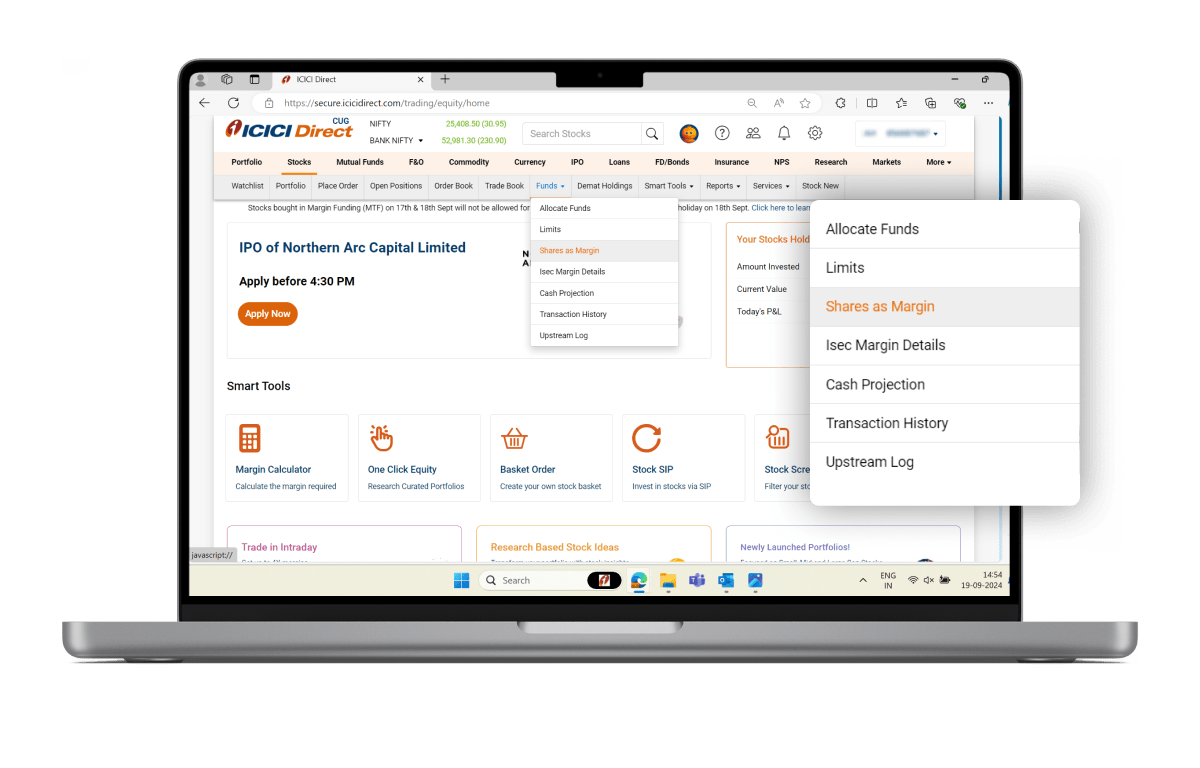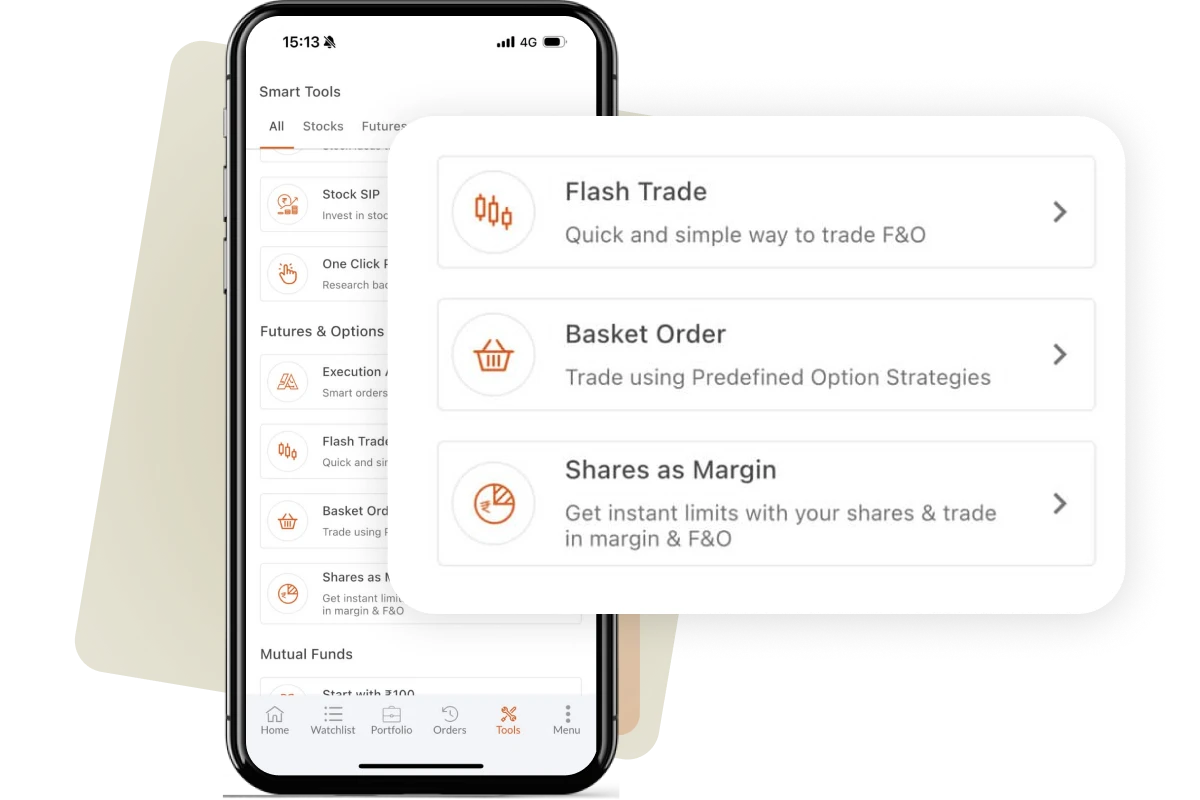-
Invest
Start Mutual Fund SIP as low as ₹100
- Research Picks
- SIP @ ₹100
- New Fund Offer

-
Trade
Why pay more?
When you can pay less!With Just 25%* Funds
Buy Stocks and Pay Later
with Ease Using MTF
-
Markets
No time to track the market?
Our research picks got you covered!- Daily trading ideas
- Short term
investment ideas

-
Learning
- Offerings
- Pricing
- NRI
- Customer care
-
Accessibility options












